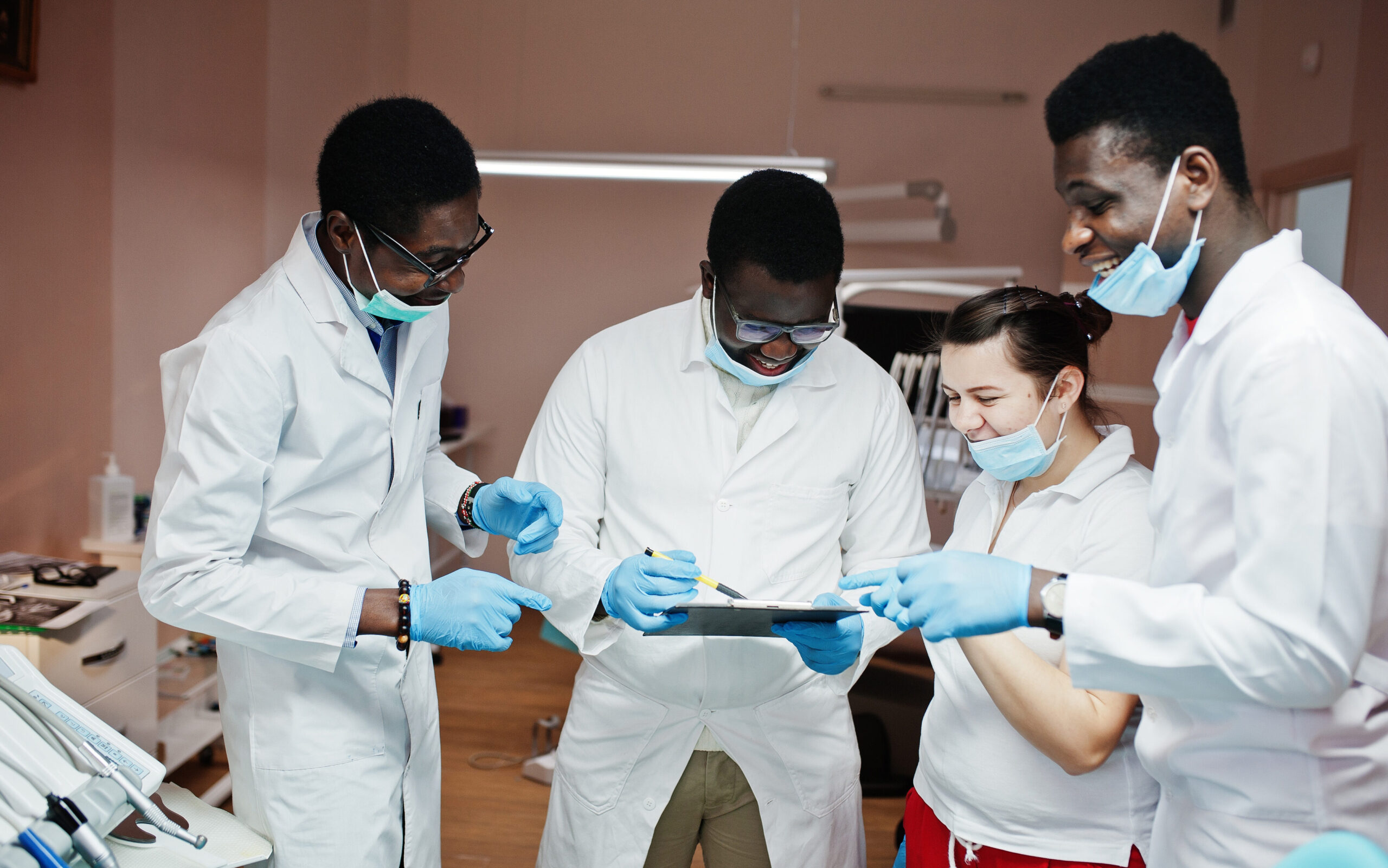Translational Science Benefits
Summary
Overarching Goals and Approach
The Center for Pathway Programs (CPP), created by Drs. Tony Fuller and Charles Muiruri, provides support and reduces burdens for those who administer or participate in pathway programs at Duke. It is now developing YOJO (short for “Your Journey”), an online platform for centralized pathway program application, referral, recruitment, and evaluation functions.
The overarching goals of YOJO are to: (1) facilitate promotion and recruitment to appropriate pathway programs, (2) easily track participants’ engagement and outcomes through these programs, and (3) facilitate networking and collaboration amongst program administrators. CPP identified more than 50 interested program personnel and investigated their current needs and desired services.
To facilitate engagement, YOJO will include a “journey quiz” wherein learners enter a few demographic details (e.g., age, gender, racial/ethnic identities, education) and their interests. YOJO’s algorithm then matches learners to programs. Learners can then apply to multiple matching programs using a common application. Upon successful completion of a pathway program, YOJO will facilitate awareness, recruitment, and pathway continuation by sending automated recruitment messages from next-stage programs, inviting them to continue their learning. YOJO will allow program administrators to easily create and update program advertisements for participants and mentors. The home page will host a running list of programs currently recruiting and will highlight specific programs that have low application rates. Lastly, CPP plans to offer access to scholarship search engines and affordable test prep opportunities to participants and mentors.
For program administration, YOJO will include dashboards with participant and outcome data to make this information easily accessible, understandable, and communicable for program staff to demonstrate impact and advocate for funding and other sustainability resources. YOJO will also include a contact section for programs to facilitate open communication and potential partnerships directly between program administrators.
CPP’s co-founders initiated a stakeholder-driven approach to platform development as part of a critical planning phase before CPP itself was formalized. They first focused on engaging pathway program personnel (e.g., program coordinators and admin) as initial users and beneficiaries, acknowledging that the platform requires engagement from many pathway program partners to be maximally beneficial to prospective learners and program administrators. CPP identified over 50 interested program personnel and investigated their current needs and desired services. CPP’s leaders then submitted a proposal to establish CPP within Duke Clinical and Translational Science Institute (CTSI) and to receive seed funding for salary support, additional personnel, and operational costs. Then, they secured a web developer, One Cow Standing, to begin developing the online platform.
During platform development, CPP has met regularly with pathway program personnel to present current progress and gather feedback before continuing development. In addition to engaging with local stakeholders, the team presented their work at the Association of American Medical Colleges (AAMC)-sponsored Pathway Programs & Bridges Conference, where they received more feedback about platform operation needs, current administration experiences, and the need for these services nationally. Going forward, CPP plans to engage program participants as additional stakeholders whose perspectives will be integral to future platform development.
With YOJO, pathway programs can take a more coordinated approach by using the same platform to conduct several administrative tasks (e.g., recruiting learners and mentors, communicating with participants, tracking outcomes), which will allow them to better leverage administrative financial resources allocated to their specific program, and ultimately have a more robust impact on the people they serve. YOJO is designed to serve Duke at present, but it is intended to serve as a model for other institutions facing similar challenges.

Future Direction
Finalizing a platform design and launching YOJO represent the primary overarching next steps; this will permit platform use by both pathway program administration and participants. To achieve this, CPP will invite program participants to stakeholder meetings, standardize data collection across programs, create a common application for participants, design the administrative dashboards, develop an easy-to-use tool for program administration to create updateable program advertisements, and recruit initial platform testers internal and external to Duke.
CPP also plans to develop synergistic efforts (e.g., evaluations of pathway programs and mentoring workshops) to further the impact of YOJO on the recruitment and retention of URM learners in STEM. In addition to creating a platform for use within Duke, CPP aims for YOJO to be available and beneficial beyond Duke. This will require that CPP create strategic external partnerships on the national level and design YOJO in a way that would be broadly applicable and useful for programs outside of Duke.
Significance
Pathway programs are educational and professional development programs that can begin as early as elementary school and continue to early career training. Such programs provide critical experiential opportunities for learners (i.e., students and early career professionals) to develop STEM knowledge, interests, and experiences that position them to pursue related education and careers. Many pathway programs specifically seek to engage historically minoritized learners in STEM academic programs and careers with the intention of increasing representation and diversity in the workforce.
Pathway programs often operate in silos, making it difficult for learners to chart a course through a series of programs that support their long-term career goals. Additionally, program personnel face immense administrative burdens, including recruiting participants and mentors, promoting programs, and measuring outcomes. As such, resources and efforts addressing these needs and burdens reduce available resources for program expansion and innovation, which can hinder program impact. At Duke alone, there are close to 100 pathway programs, each operating largely in isolation. Increasing coordination and leveraging shared administrative functions among these programs would significantly increase the impact of the training landscape at Duke. As many pathway programs specifically seek to engage underrepresented minority (URM) individuals, lack of support and coordination can hinder efforts to develop a diverse workforce, thereby limiting the potential for progress and advancement in the STEM field.
Benefits
Demonstrated benefits are those that have been observed and are verifiable.
Potential benefits are those logically expected with moderate to high confidence.
CPP developed and created the new online platform to help learners navigate pathway programs as well as help staff admin track and measure outcomes of learners who enter these programs. They are building and planning to share the platform with pathway programs across the U.S. demonstrated.
Clinical
The CPP’s online platform has the indirect potential to reduce and prevent disease in the future by diversifying and training the workforce in clinical and translational research. potential.
Community
By facilitating the administration of and participation in pathway programs that are focused on clinical and translational research, CPP’s online platform has the potential to indirectly benefit future health care quality by diversifying and training the workforce. potential.
Community
CPP’s online platform has the potential to increase the quality of life for pathway program participants because it seeks to facilitate participation in programs that foster the development of successful careers, especially for those who may have difficulty accessing related resources (e.g., URM individuals). potential.
Community
CPP’s online platform will likely increase the cost-effectiveness of pathway programs by facilitating program recruitment, application processes, and administration. potential.
Economic
Duke Identified Benefit: Workforce Development and Diversity
CPP is BIPOC-led (BIPOC stands for Black, Indigenous, and People of Color). Its values and operations are significantly influenced by the lived experiences of CPP’s leadership. CPP is creating this platform to intentionally recruit and support URM individuals into pathway programs that can lead to clinical and translational research careers. CPP has this focus on supporting URM individuals because URMs are historically and systematically minoritized in many academic programs and in STEM careers.
CPP and its platform plan to act as the “foot in the door” for URM individuals by reducing barriers to accessing and continued engagement in desired learning pathways. YOJO does this by having learners receive promotional messaging encouraging them to apply to next-stage programs, thereby fostering pathway persistence. In addition to this, CPP plans to offer mentorship opportunities, access to scholarship search engines, and test prep for free or heavily discounted rates to participants in pathway programs via the online platform.
By making it easier for URM individuals to engage in pathway programs as both learners and mentors and by reducing administrative burdens, CPP will increase the impact of pathway programming and increase the diversity of the clinical and translational science workforce. The online platform also has the potential to further increase health equity and diminish health disparities, given some pathway programs focus on supporting learners interested in health equity and disparities research.
Lessons Learned
Facilitators of Success
Institutional Support / Leadership Buy-in / Leadership Champions
CPP has received immense institutional support from Duke leadership. Dr. Kevin Thomas, the Vice Dean for Diversity, Equity, and Inclusion for Duke School of Medicine, invited CPP’s cofounders into institutional leadership and departmental meetings to coordinate the creation of CPP. This led to internal seed funding to support CPP’s development, hire staff, and begin platform development. Dr. Ebony Boulware, former director of Duke CTSI, was instrumental in the establishment of CPP within CTSI and continues to be a critical sounding board and champion for CPP’s efforts.
Local and National Stakeholder Engagement
CPP has received positive reinforcement and constructive feedback from staff involved in pathway programs. At the local level, pathway program staff are actively engaged in the work CPP is doing by regularly providing useful feedback for continuing development. In 2022, CPP presented at the AAMC-sponsored Pathway Programs & Bridges Conference, where they shared their platform plans, received feedback, and discussed the platform’s utility at Duke and beyond. The team aims to develop a white paper on the need for such a platform at institutions of higher learning across the U.S.

Stakeholder-driven Development Approach
CPP co-founders chose a stakeholder-driven approach to ensure they are developing services that will be used, thereby demonstrating its value proposition. This ongoing process includes regularly meeting with stakeholders to present progress and receive insightful feedback. Although it is a rigorous and time-consuming feedback cycle, it is the best approach for engagement, and it has led to overwhelming support from the multiple groups involved (e.g., program administrators, Duke leadership, and national conference attendees).
Broader Context and Timing
The idea for a pathway program resource had existed for some time among key stakeholders for CPP, given its value in addressing the circumstances that create burdens for URM individuals.
Ongoing anti-racist and Black Lives Matter movements, elevated in 2020 by the murder of George Floyd, prompted additional support of anti-racist, equity-focused initiatives at Duke. Given the development of the School of Medicine’s strategic framework for Dismantling Racism and Advancing Equity, Diversity, and Inclusion, 2020 presented an opportune time for Drs. Tony Fuller and Charles Muiruri to bring this idea into fruition as a part of the strategic plan. CPP is specifically named as a program aligned with the strategic plans of the Duke Chancellor’s Moments to Movement initiative, which seeks to address systemic racism.

Challenges & Learnings
Challenge: Website Development
When first pitching this platform to Duke leadership, CPP started by looking into Duke website development resources. Unfortunately, these resources could not build the desired platform functionalities. However, with the support of Duke’s leadership, CPP was given permission to contract with an external developer, permission to use Amazon Web Services to host the website, and funding to hire an external partner. The team is now working with a website development company, One Cow Standing.
Challenge: Misunderstandings about Intention
While engaging stakeholders, CPP encountered misunderstandings with internal pathway program staff; in particular, some misunderstood YOJO as intending to drastically change or determine how individual pathway programs are run. This concern may be relevant in some cases in that CPP may suggest changes in participant data collection practices. However, CPP will not change the training programs’ design and implementation. To address these concerns, CPP used strategic conversations to ensure program staff understood that platform participation is voluntary and that the purpose of this online platform is to make programs easier to engage learners and track outcomes. This required CPP to be thoughtful with how they are communicating their intentions to stakeholders to ensure that everyone understands the purpose of CPP and the online platform.
Challenge: Prioritization of Program Needs
In gathering data on the needs and desires for CPP’s services and YOJO, CPP encountered the challenge of prioritizing broadly applicable stakeholder needs. The team recognized that trying to fulfill every request by team members and programs would not be feasible. CPP developed a phased platform development plan to implement stakeholders’ feature requests solicited from a program survey. This plan considered the requested features’ shared importance to stakeholders, possible beneficial impacts to stakeholders, and feasibility of creation (e.g., complexity of design, costs). As such, this plan focuses on completing short-term, feasibly addressed needs before features that will require more time, effort, and complexity to complete. This phased development plan allows the team to achieve a broader goal of regularly presenting a product that is applicable to everyone and shows the stakeholders YOJO’s value.
Challenge: Navigating Data
Only some of the pathway programs collect data on program operations or participant outcomes, and they each have their own data-gathering processes. As such, CPP needs to be strategic in the data they request from all the programs and which data points are essential for platform functioning and tracking learners while they are in programs and after they have completed programs. To mitigate this challenge, CPP is working with stakeholders to determine their current data processes, understand privacy and data sharing concerns, and learn how the team can align the current data landscape with CPP’s goals.

